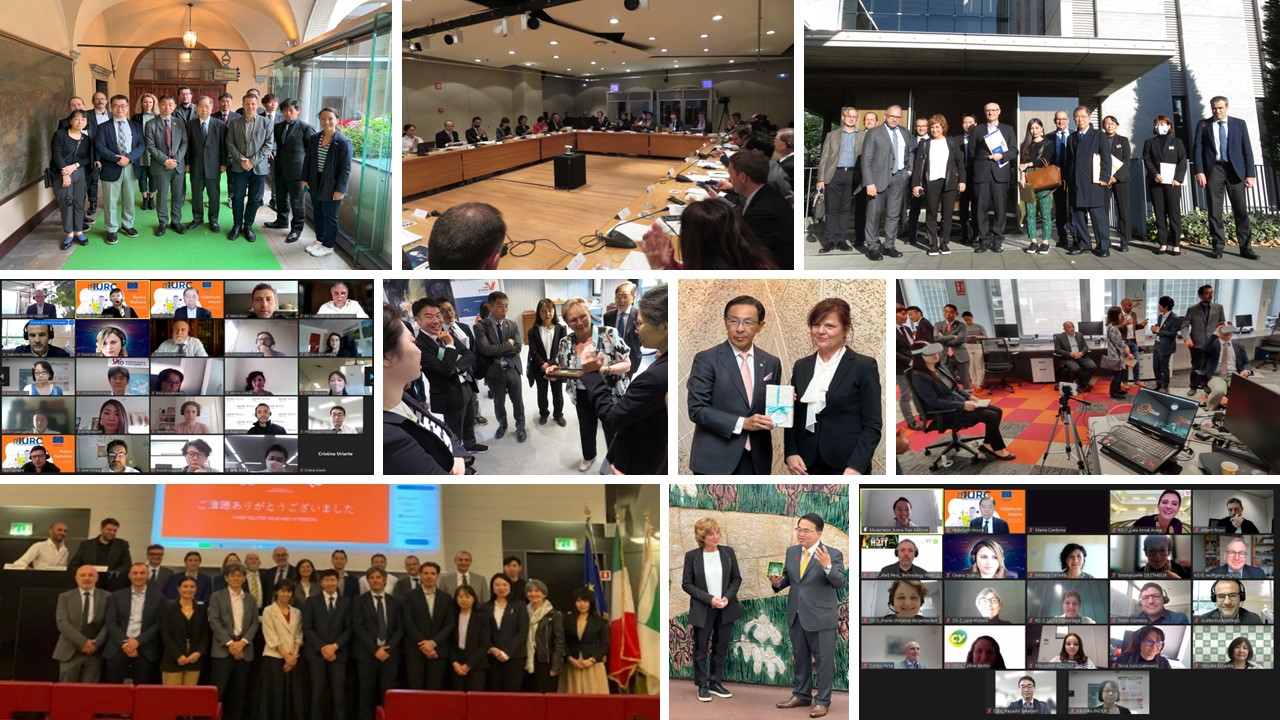The EU-Japan Region-to-Region Innovation Cooperation, launched in November 2021, focused on fostering collaboration between EU regions and Japanese prefectures. It emphasized knowledge sharing and mutual learning in policy areas of innovation, entrepreneurship, and start-up ecosystems at the regional level. It acknowledged the common objectives and challenges faced by both EU and Japanese regions, such as green recovery, decarbonisation, renewable energy, digitalization and social innovation.
Participating Regions from the EU and Japan: The project included six EU regions (Auvergne-Rhone-Alpes, Basque Country, Catalonia, Emilia Romagna, Ljubljana Urban Region, and Val d’Oise) and five Japanese Prefectures (Aichi, Kyoto, Osaka, Hiroshima, and Oita). An open pairing approach was used to match European regions with Japanese prefectures, without initially fixing one-to-one pairing for specific topics. Two study visits were executed: the first for the EU regions to Japan in November 2022 and the second for the Japanese prefectures to the EU in June 2023. With participation of all these EU and Japanese regions, Exchange Meetings were held for networking and exchanging ideas. A series of webinars were organized on common topics of interest such as energy transition and hydrogen, start-up ecosystem and open innovation, foodtechs and advanced air mobility. These activities facilitated contact between regional government officials and stakeholders, enhancing institute-to-institute and business-to-business exchanges.
Innovation policies in the EU and Japan: Both in the EU and Japan, regional governments play a crucial role in fostering innovation. The project recognized the importance of innovation in vitalizing regional economies, noting differing approaches in each region. The EU’s Smart Specialisation Strategy focuses regional diversity and strengths, whereas Japanese policies encourage local initiatives based on regional characteristics, relying largely on local ingenuity and financial resources, with limited financial support from the national government.
The role of regional governments for innovation: There have been extensive cooperation between EU and Japanese businesses in the global supply chain. However, exchanges between regional authorities on innovation and smart specialisation policies were underdeveloped. The project aimed to enhance the role of regional authorities in both the EU and Japan in promoting innovation policies and strategies, while also supporting EU-Japan industrial cooperation and business matching initiatives.
Public-Private Partnerships: Private sector involvement is central to innovation, with regional authorities identifying priority areas for innovation and attracting investment. The project participants learned good practices of public-private partnerships in the EU and Japan, which are essential for developing innovation initiatives, promoting entrepreneurship, and creating start-up ecosystems. They learned about public infrastructures like research centres to support companies including SMEs, and the quadruple helix approach involving universities, research institutes, companies and civil society,
Impact of the project: Besides formal cooperation agreements, significant progress was made in fostering exchanges between key innovation actors in each region including universities, research institutes, technology parks and companies. Participants from both EU and Japan expressed high satisfaction with the project, noting its role in bringing together EU and Japanese key actors, enhancing mutual understanding and triggering the personnel and institutional interaction. They expressed their wish that opportunities of decentralized cooperation between the EU and Japan would continue to be strengthened. The project highlighted the need of different strategies for cooperation for different topics and the potential for thematic cluster activities on common interests like hydrogen, start-up ecosystems, and open innovation. It underscored the need for coordination between region-to-region and city-to-city cooperation, particularly in the jurisdictional context of Japan.
